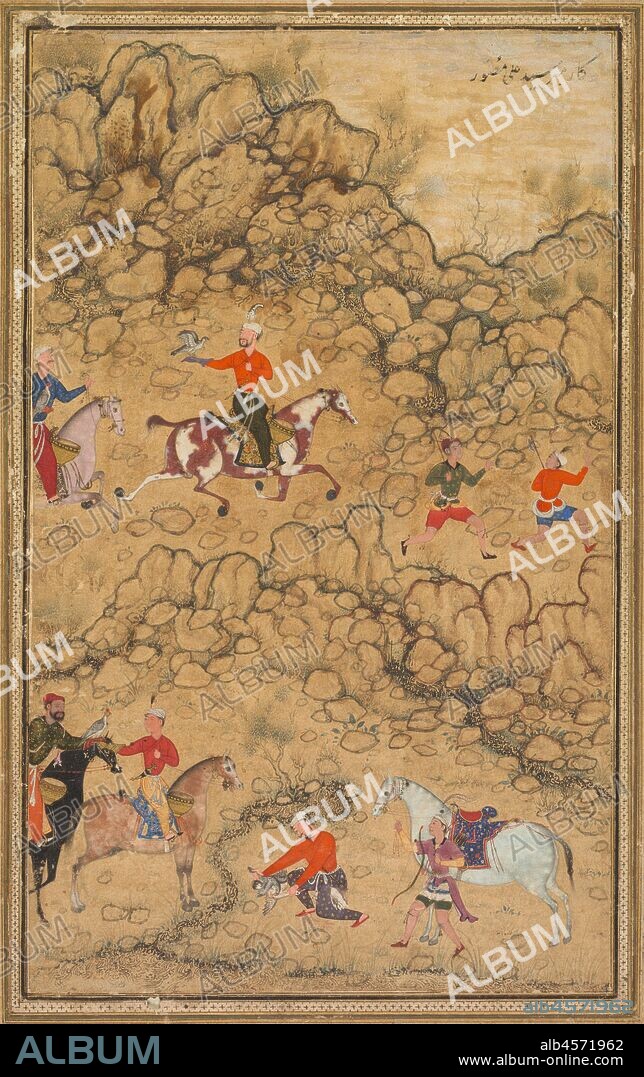alb4571962
Hunting with falcons in a landscape; Verso: Calligraphy of Chaghatai Turkish poems..., c. 1558-60. Creator: Abd al-Samad (Persian, c. 1510-1600), attributed to.

|
Add to another lightbox |
|
Add to another lightbox |



Title:
Hunting with falcons in a landscape; Verso: Calligraphy of Chaghatai Turkish poems..., c. 1558-60. Creator: Abd al-Samad (Persian, c. 1510-1600), attributed to.
Caption:
Hunting with falcons in a landscape; Verso: Calligraphy of Chaghatai Turkish poems in praise of wine, Sultan Muhammad Nur (Persian, c. 1472-1536) and Mirza Muhammad (probably Persian, active c. 1520s), c. 1558-60; borders added probably 1700s. The Mughals hunted on horseback with falcons. The hunting party would ride out into the wild and flush the prey. Then, its hood removed, the falcon would chase the prey and bring it down. From childhood Akbar loved hunting, and this painting may be a rare depiction of Akbar as a youth at the lower left, with the black feather in his white turban. The falcon that has caught a duck has been hooded and is being passed between the young man and his bearded companion. This important work was painted by one of the Persian artists Akbar?s father brought to India from Iran. The inscription at the upper right gives the name of one of the other Persian artists, but it is probably an erroneous later addition. This page of delicately illuminated calligraphy from the pre-Mughal period was mounted into a Mughal album. The poems are written in the native language of the Mughals, a form of Turkish called Chaghatai, using a flowing form of Arabic script called nasta?liq. The Mughals self-consciously adopted Persian as their official court language, so few Chaghatai books or works of calligraphy were made for them. The quatrain in the center reads: The wine has made an attempt on my life, Since it is the wine that can wear down the pain of separation. O Sufi! Let the mosque be for you, and the tavern for me, Since you need to arrive at the Spring of Kowsar, while I am in need of wine! The Spring of Kowsar is where the righteous quench their thirst in the afterlife.
Credit:
Album / Heritage Art/Heritage Images
Releases:
Model: No - Property: No
Rights questions?
Rights questions?
Image size:
4785 x 7603 px | 104.1 MB
Print size:
40.5 x 64.4 cm | 15.9 x 25.3 in (300 dpi)
 Pinterest
Pinterest Twitter
Twitter Facebook
Facebook Copy link
Copy link Email
Email

